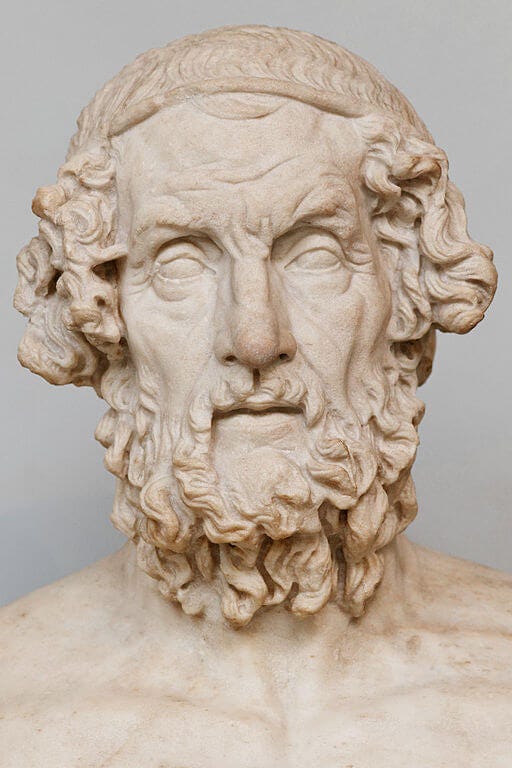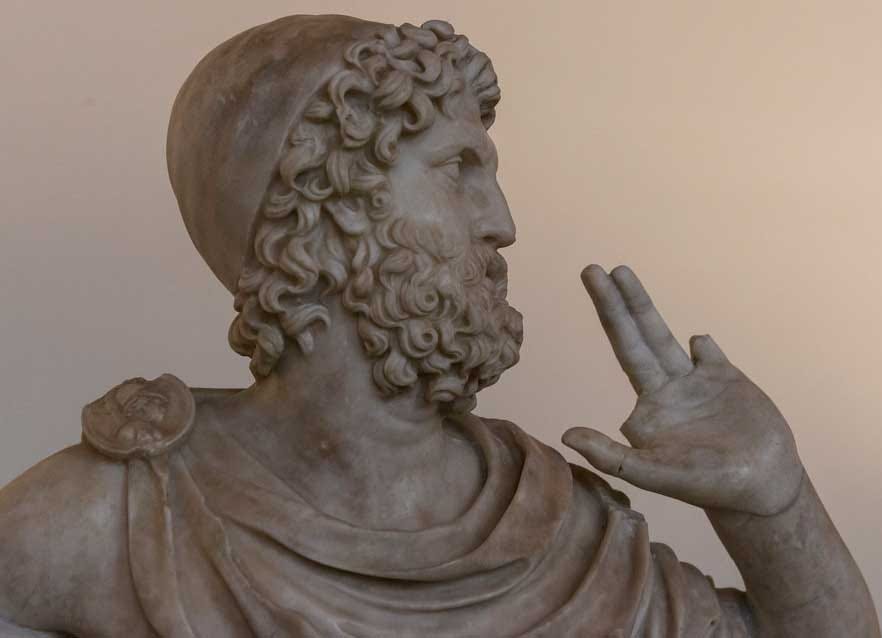Old Odysseus Proves His Arête
The ideal of virtue and excellence are deep qualities. They require care and attention, especially if we want to revive an ancient understanding of them.
Throughout this series on Ancient Athletic Virtues we’ve seen how Arête forms the moral backbone of sport in the Ancient Greek world. Sports are the place to cultivate and display character. It’s not enough to simply train, one MUST compete and defend that character.
Our final lesson in Arête comes again from the ancient Poet Homer. I’ve included a lot of Homer’s text in this post because his words paint a wise narrative.
Today’s story highlights the true value of Arête. The reason sport occupied such a moral high ground was its unique ability to bring all our faculties together. In sport we bring together body, mind, and spirit for one grand performance aimed at excellence.
An athletic challenge
In this final story on Arête we turn to the legend of Odysseus, King of Ithaca. Homer’s poem The Odyssey chronicles Odysseus’s ten year journey back from the Trojan War to his kingdom. In the ninth year, Odysseus and his men land in Phacia and are treated to a banquet as honored guests. The Phacians understand the important moral weight of sport and offer to show Odysseus and his men that they excel in sports more than any other Greek nation.
They display their skills in discus, footracing, long jumping, and painful wrestling. They then invite Odysseus to participate and compete with them. “Won’t you too, sir, try your hand at some contest, that is, if you know any, but you have the look of an athlete to me. There is no greater fame for a man that that which he wins with his footwork or the skill of his hands.”
Odysseus politely refuses given his old age and the ravages of war and exploration have wrought on his tired and sore body. This doesn’t sit well with one eager young Phacian. He stands up and attacks Odysseus’ character, aims right at his Arête:
“As I see it, stranger, you’re no good at sports like a real man. You remind me of a master peddling sailor, one who trades from port to port with thoughts for nothing but cargoes and loads and especially profits. You’re no athlete.”
This trash talk further shows us the moral quality of athletics. If Odyseeus won’t compete for glory than he clearly ONLY cares about material possessions and external motivation. He’s not morally motivated. He’s NO ATHLETE! Odysseus doesn’t care to win but he cares to defend his character. He rebukes young Euryalos by telling him he has “... a masterpiece in body which not even a god could improve, but empty in the head.” A true athlete combines mind and body together: Arête.
Athletic Retort
Odysseus then shows his character and stands to deliver a powerful defense:
“Your sneering made my heart beat faster. I am no ninny at sports, as you would have it. I was among the best in my time, but now I exist in pain and misery, having risked and endured much in the wars of men and the toils of the sea. Yet despite the ravages of these evil things I will try your tests of strength. Your sneer has galled me and your words have stung me.”
For Odysseus the most important thing isn’t to win. If it were he would have taken the first opportunity to compete with the Phacians.
The most important thing is his CHARACTER. By stinging his identity as a ‘master peddling sailor’ the Phacians aimed at the most important element of Odysseus athletic identity.
Living with Arête today
What is the FINAL takeaway from our deep dive into Arête?
It’s that the struggle that comes from physical tests builds our character in a profound manner. It may sound cliche, but it’s not a cheap matter. The MOST EXCELLENT virtue comes when we bring all the best ourselves to bear. In a moment of intense pressure we execute with tremendous skill and courage. We embrace sacrifice through pain in the body and shame in defeat for the chance to display the best of ourselves.
To begin living a life by Ancient Athletic Virtues you must first embrace the importance of physical suffering to building your character. The Greeks taught us it’s the MOST IMPORTANT place to cultivate character. You’d do well to seriously incorporate that lesson into your life.
In post #5 of the Ancient Athletic Virtues Series we’ll pick back up with Odysseus and the Phacians to introduce us to the next Ancient Greek Athletic Virtue: Agon or the Contest





